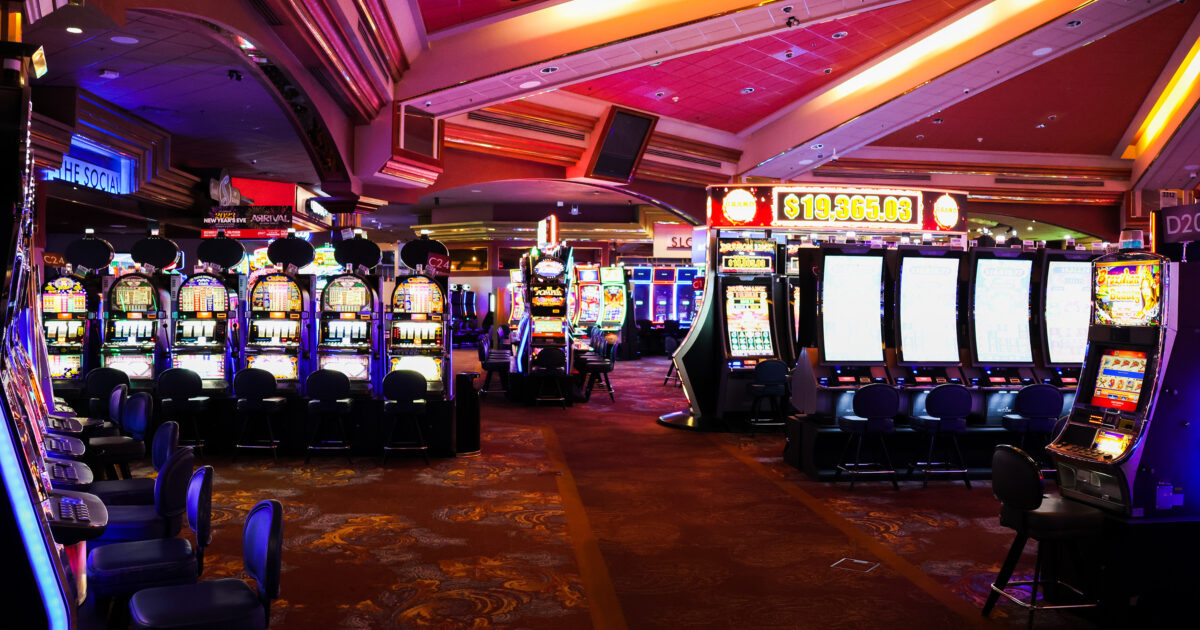Casino experiences have fascinated players over the ages, evolving from basic recreational activities to complex experiences that blend luck, tactics, and fun. From the ancient roots of gambling in societies including the ancient societies of Mesopotamia and Rome to the extravagant corridors of contemporary casinos, the journey of these games uncovers much about our nature and our interaction with risk. As cultures have merged and technological advancements have occurred, casino games have evolved, reflecting the changes in society and developments in gameplay.
The initial iterations of gambling likely included elementary dice games and placing bets on the outcomes of sports competitions. Over time, these early games grew into better-organized games like table games, the game of roulette, and the myriad slot machines that line casino floors today. Each era brought its unique rules, visual styles, and cultural importance. Today, casino games maintain their evolution with the rise of digital gaming platforms, enabling players from various parts of the world to engage in a collective experience, further fusing the traditional with the modern era.

Initial Beginnings of Gambling Games
Casino activities have origins that stretch back to ancient societies, where betting was profoundly entrenched in cultural practices and cultural rituals. The initial known instances of gambling emerged in Mesopotamia around three thousand BC, featuring basic die activities made from bone bones. These primitive games laid the foundation for more advanced betting activities, showing humans’ instinctive urge to find fortune and amusement through luck.
As civilizations evolved, so did their betting pursuits. 6789 In early China, around two thousand three hundred BC, tiles were unearthed that were similar to early rudimentary forms of a lottery game game. More organized instances of gambling emerged in the Roman civilization, where activities of luck were a common pastime, often occurring in community events. The ancient Romans developed multiple wagering games, which composed die and table activities, showing the widespread nature of gambling across different social strata.
With the passage of ages, these primitive games contributed to the progress of modern gambling activities. In the Middle Ages, card games emerged prevalent in European culture, paving the way for the organized gambling establishments we know today. The transition from informal betting to organized gaming in taverns and private homes marked a major shift in how people engaged with games of luck, leading to the subsequent creation of gaming houses as dedicated venues for betting.
The Growth of Modern Casino Gaming
The final 20th century marked a significant change in the realm of gambling games, propelled by technological progress and changes in societal views towards wagering. The introduction of personal computers and the World Wide Web altered the way players engaged with their favorite games. Online casinos emerged, enabling players to enjoy classic casino classics like poker and 21 from the safety of their own homes. This new online environment not only expanded access to casino games but also attracted a fresh crowd who found the ease and variety attractive.
As digital gaming gained momentum, so did innovations in casino tech. The development of high-quality software and visual elements converted traditional casino games into captivating experiences. Players could now interact with authentic live dealers through real-time broadcasts, importing the vibe of brick-and-mortar casinos directly into their living rooms. This fusion of in-person play with online platforms created a unique hybrid experience that enhanced the social aspect of gambling, allowing it possible for individuals to engage and challenge with fellow gamers around the planet.
Moreover, the growth of mobile gaming substantially changed the casino landscape. With the ubiquitous use of mobile phones and touch devices, players can play their beloved gaming options anywhere, at any time. Mobile applications offer a extensive range of options customized for mobile screens, catering to the dynamic daily life of modern users. This availability has resulted in rising involvement in casino games, contributing to the exponential growth of the gaming industry. As a result, the future of the gaming industry continues to evolve, responding to technological advancements and shifting consumer preferences.
The Impact of Technology on Casino Games
Technology’s advancement has greatly changed casino games, enhancing the overall experience for players for gamblers globally. As the internet emerged, online casinos emerged, allowing players to play their preferred games from the safety of their own homes. This shift not only made casino games more accessible but also increased the variety of games available, as online platforms could offer many different versions of traditional games without the physical constraints of physical casinos.
The rise of mobile technology further transformed the casino gaming landscape. With the proliferation, players now have the ability to play casino games anytime and anywhere. This flexibility has resulted in the creation of dedicated mobile applications and optimized websites that offer smooth gaming experiences. Additionally, advancements such as live dealer games have delivered the genuine feel of a casino into players’ homes, connecting between physical and online gaming.
Moreover, advancements in artificial intelligence and VR are leading to the next generation of casino games. AI improves game design and player interaction, creating customized experiences based on user behavior and preferences. Meanwhile, virtual reality provides immersive environments where players can engage in a simulated casino setting, making the gaming experience more engaging and realistic. As technology continues to evolve, the future of casino games seems bright, filled with limitless opportunities for innovation and entertainment.